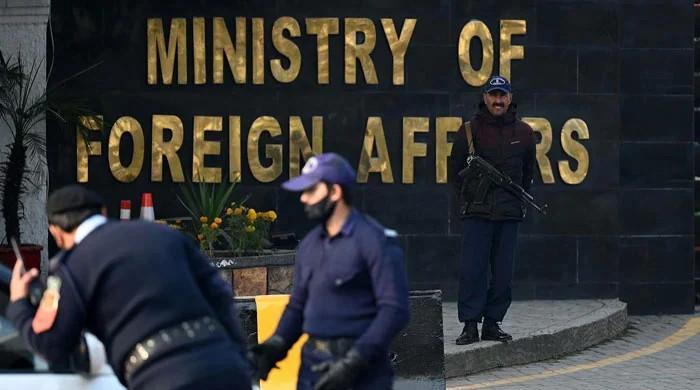
Pakistan and Afghan Taliban Set to Hold Crucial Talks in Doha
In a significant diplomatic development, Pakistan's Ministry of Foreign Affairs has announced that a high-level delegation led by Defence Minister Khawaja Asif will engage in talks with representatives of the Afghan Taliban today in Doha, Qatar. This meeting underscores the ongoing efforts to foster dialogue and stability in the region, particularly in light of the evolving political and security landscape in Afghanistan.
Background of the Talks
The relationship between Pakistan and the Afghan Taliban has been a complex one, characterized by historical ties and varying levels of cooperation. Since the Taliban's return to power in Afghanistan in August 2021, Pakistan has played an essential role in facilitating discussions aimed at achieving peace and stability in the region. The talks in Doha are expected to address several critical issues, including security cooperation, border management, and the humanitarian situation in Afghanistan.
The Role of Qatar
Qatar has emerged as a key mediator in the Afghan peace process, hosting negotiations between various Afghan factions and international stakeholders. The country’s neutral stance and established ties with both the Taliban and the international community make it an ideal location for such high-stakes discussions. The Doha talks are expected to provide a platform for Pakistan and the Taliban to address their mutual concerns and outline a path forward for cooperation.
Objectives of the Dialogue
The primary objectives of the talks between Pakistan and the Afghan Taliban are expected to include:
1. Enhancing Security Cooperation: Given the rising security challenges in the region, discussions are likely to focus on counterterrorism measures and joint efforts to combat extremist elements that threaten both nations.
2. Border Management: The Durand Line, which serves as the border between Pakistan and Afghanistan, has been a point of contention. Talks are expected to address border security and management to prevent illegal crossings and enhance bilateral trade.
3. Humanitarian Assistance: With Afghanistan facing a severe humanitarian crisis, Pakistan may discuss the provision of aid and assistance to the Afghan people, emphasizing the need for international support and cooperation.
4. Political Stability in Afghanistan: The talks may also delve into the political dynamics within Afghanistan, with Pakistan likely advocating for an inclusive government that represents all factions and ethnic groups.
The Current Situation in Afghanistan
Since the Taliban regained control of Afghanistan, the country has faced numerous challenges, including economic collapse, widespread poverty, and a humanitarian crisis exacerbated by international isolation. The Taliban's governance has drawn criticism due to its human rights record, particularly regarding women's rights and freedom of expression. The discussions in Doha may provide an opportunity for the Taliban to showcase their commitment to addressing these issues in exchange for international recognition and support.
Implications for Pakistan-Afghanistan Relations
The outcome of the talks in Doha could have far-reaching implications for Pakistan-Afghanistan relations. A successful dialogue may pave the way for improved bilateral ties, increased trade, and enhanced security cooperation. Conversely, a lack of progress could exacerbate tensions and lead to further instability in the region.
The International Community's Role
The international community is closely monitoring the developments in Doha, as the outcomes of the talks could influence foreign policy decisions regarding Afghanistan. Countries with vested interests in the region, including the United States and neighboring states, may adjust their strategies based on the results of the discussions.
Conclusion
As Pakistan and the Afghan Taliban prepare for their crucial talks in Doha, the stakes are high. The discussions hold the potential to reshape the future of Afghanistan and its relationship with Pakistan, as well as impact regional stability. With a focus on security, humanitarian assistance, and political dialogue, these talks represent a critical step toward fostering peace and cooperation in a historically tumultuous region.
FAQs
1. What is the purpose of the talks between Pakistan and the Afghan Taliban?
The talks aim to enhance security cooperation, manage border issues, address humanitarian concerns, and promote political stability in Afghanistan.
2. Why is Doha chosen as the venue for these talks?
Doha has established itself as a neutral ground for negotiations involving the Taliban, making it an ideal location for high-stakes discussions.
3. What are the main challenges facing Afghanistan currently?
Afghanistan is grappling with economic collapse, humanitarian crises, and political instability since the Taliban regained control of the country.
4. How might these talks affect Pakistan's relationship with Afghanistan?
Successful talks could lead to improved bilateral ties, increased trade, and enhanced security cooperation, while failure could exacerbate tensions.
5. What role does the international community play in the Afghan peace process?
The international community is monitoring the situation closely, as the outcomes of these discussions may influence foreign policy decisions regarding Afghanistan.
Tags
National
